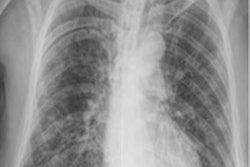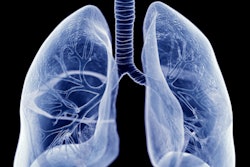
The Society of Nuclear Medicine and Molecular Imaging (SNMMI) has updated its statement regarding the use of ventilation/perfusion (V/Q) lung studies during the COVID-19 pandemic to recognize that sometimes these studies are clinically necessary.
Back in March, many facilities opted not to perform ventilation studies due to the risk of spreading COVID-19. However, the pandemic has evolved differently throughout the world. In some places, it's less risky to perform a ventilation study, which is useful in diagnosing lung disease, including vascular and airway disease.
When considering a ventilation study, the SNMMI recommends first adhering to local and institutional COVID-19 policies and procedures for aerosol-generating and nonaerosolizing procedures. The SNMMI also recommends the following when performing a V/Q study:
- In general, a patient should have a negative COVID-19 test.
- Technologists should wear appropriate personal protective equipment (PPE).
- Evaluate airflow in the ventilation study room.
- Determine the availability and capacity to administer ventilation agents such as technetium-99m-DTPA and xenon-133 gas.
- Use local infection control groups to evaluate facilities, equipment, and staff PPE.
- Look at each case independently to determine whether to perform a ventilation scan first or a perfusion scan first according to clinical indication and in consultation with a referring physician.
The society said it will continue to provide information on the use of ventilation studies as the pandemic evolves.




















